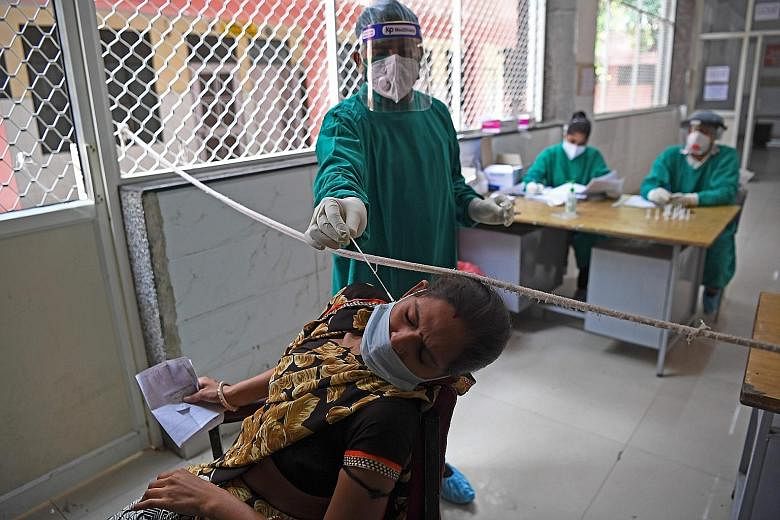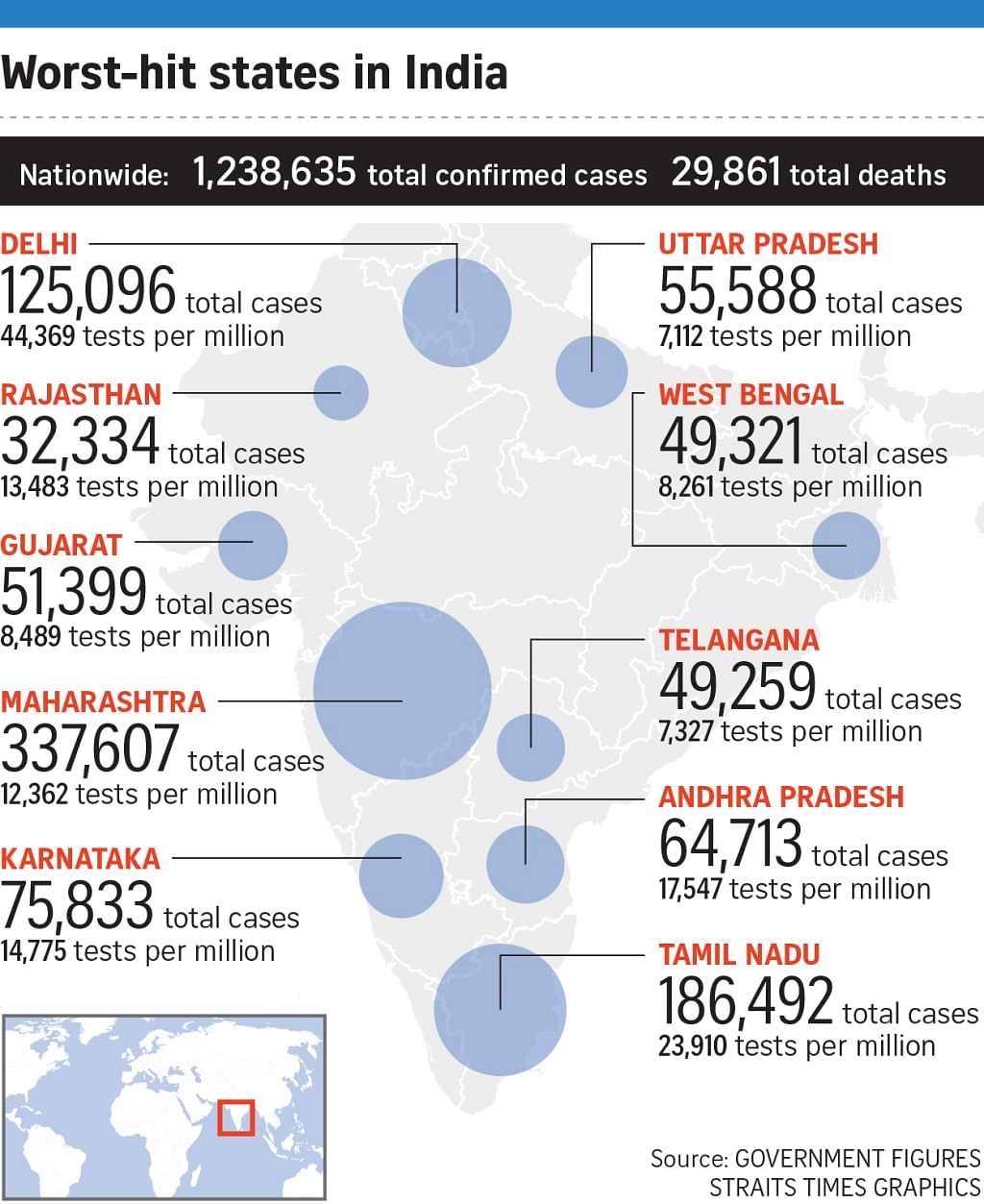A glimmer of hope has emerged for the Indian capital in its fight against Covid-19, with a steady fall in daily new infections. New cases have dropped from an average of 3,400 a day for the week beginning June 19, to a daily average of 1,430 for the seven days since July 14. Delhi, in fact, recorded its lowest daily increase since May 27 on Monday, with 954 cases.
Once the worst-hit city in India, it currently has 15,288 active cases and 3,690 deaths. A total of 106,118 people have recovered. This potential inflection point comes on the back of aggressive testing that has resulted in a higher rate of detection, as well as subsequent isolation and treatment of patients. Tests in Delhi increased almost threefold, from an average of about 7,110 per day during the week beginning June 12 to an average of 19,659 for the week beginning July 14.
Acknowledging that aggressive testing was the first step of the containment strategy, Mr Akshay Marathe, a spokesman for the Aam Aadmi Party that governs Delhi, told The Straits Times that the early adoption of home quarantine for mild and asymptomatic cases, together with public awareness campaigns advocating the practice, had encouraged more people to come forward to be tested.
"There are policies (in several states) that mandate compulsory quarantine in government facilities, which has been a huge, huge hurdle in getting people to come forward to actually get tested," he said.
More than half of the active cases in Delhi as of Tuesday were in home quarantine and placed under the regular observation of state health workers.
Some have argued that if Delhi is able to consolidate this gain over the next few weeks and curb the spread of the coronavirus, it would mean that the city has passed its peak of infections. However, concerns remain around the false negatives that the rapid antigen test kit being used, one developed by the South Korean firm SD Biosensor, can lead to. Around 70 per cent of the tests in Delhi are being conducted using this kit.
The Indian Council of Medical Research (ICMR) had tested the kit and found that while its rate of detecting true positives was more than 99 per cent, its ability to detect true negatives ranged from 50.6 per cent to 84 per cent.
Therefore, while granting the kit approval for public use, the ICMR also recommended that every case detected as negative with the rapid antigen test kit be "definitely tested" with the "gold standard" and more reliable reverse transcription polymerase chain reaction (RT-PCR) technique.
But according to a report in The Hindu newspaper, only around 1,670 (about 0.5 per cent) of the 285,225 rapid tests that showed up as negative between June 18 and July 16 in Delhi were retested using the RT-PCR technique; 262 of them turned out to be positive. This means that there are many asymptomatic positive cases who could still be passing on the infection to others in the community.

Meanwhile, more Indian states are adopting an aggressive testing policy as the capacity to run tests - both RT-PCR and rapid antigen tests - increases concomitantly.
Mumbai, one of the worst-hit cities, opened up testing for everybody on July 7, irrespective of whether they have symptoms or a doctor's prescription.
The ICMR's guidelines still restrict testing to symptomatic individuals, as well as asymptomatic "direct and high-risk" contacts of a confirmed case.
With more than 45,000 daily new infections pushing the total tally to 1,238,635 cases yesterday, there have been growing calls for India to ramp up its testing and for the ICMR to further relax its testing norms.












